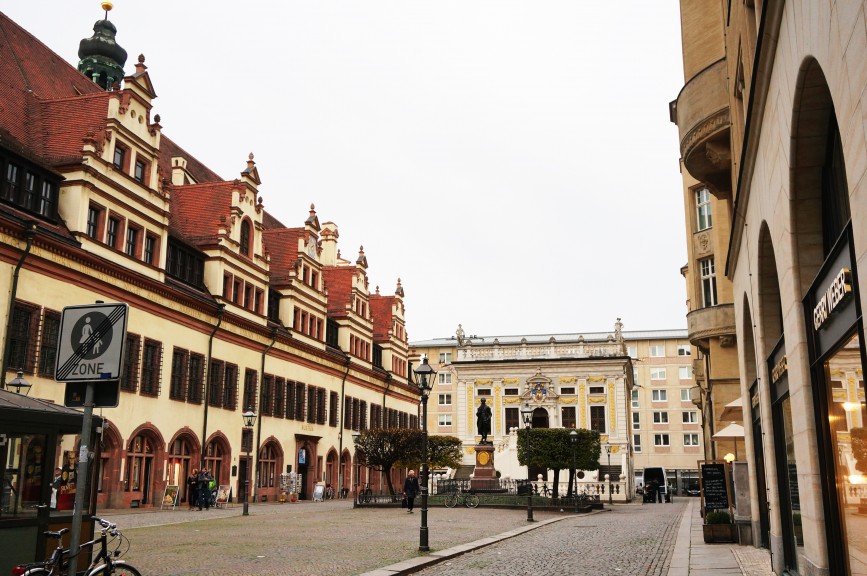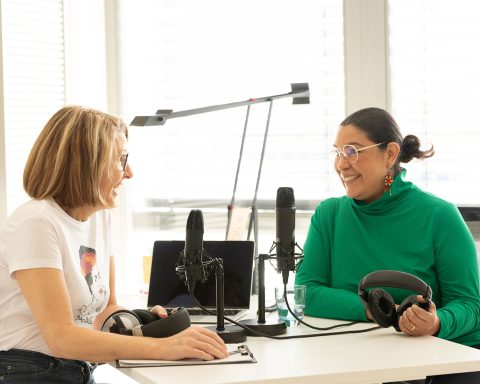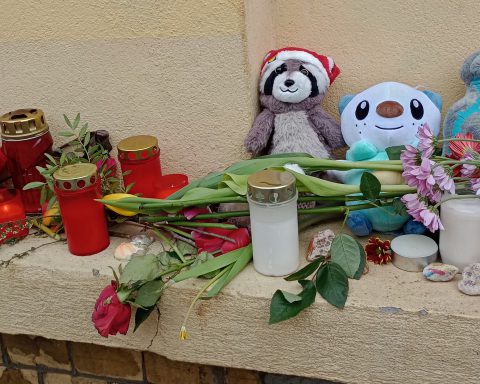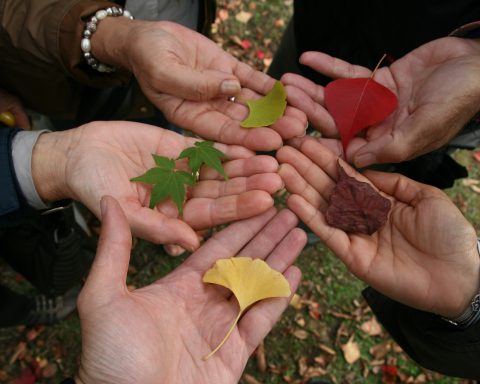For the first time ever, all foreigners and naturalized Germans residing in Leipzig for at least 3 months will be able to vote in the Leipzig Migrants’ Council selection process. The council has an advisory role to Stadt Leipzig on matters concerning the city’s international community. If you’re eligible to vote, you should receive a letter with instructions latest by March 21st (otherwise, contact Stadt Leipzig’s Referat für Migration und Integration). The voting will be open from 8 a.m. on March 22nd to 8 a.m. on March 29th, 2021, and applies to candidates split up into 8 geographic regions (here’s a list of all the candidates by region). The person with the most votes from each region will be selected to represent that region. The Leipzig City Council then appoints the next two with the most votes for the remaining positions, for a total of 10 representatives.
In its ongoing “Meet the Candidates” series, LeipGlo is running these Q&A’s with Leipzig Migrants’ Council candidates who reach out to us, as they come into our inbox (SEE ALL PUBLISHED ONES HERE). If you’re a candidate and would like to be featured here, email a photo of yourself with attribution to contact@leipglo.com and indicate that you would like to receive the link to fill out the questionnaire online. We will be accepting questionnaires also during the voting period.
Elena Giannoni, Italy
Geographic region for vote: Nord-, West- und Mitteleuropa
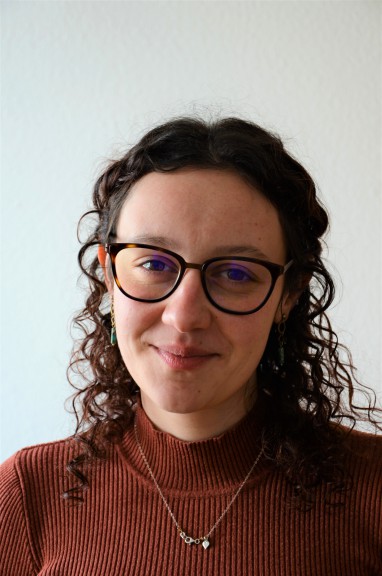
Who are you? Tell us a little bit about you.
Hi everyone! I’m Elena, a student in the Master’s program “German as a foreign/second language” and a proud “Italian mom” (even though I’m not a mother), as many friends are used to calling me.
Since I arrived in Leipzig, I have had the chance to spend a lot of time with international students from all over the world. I mostly got to know them through the university or through the meetings proposed by the association “Wilma” and the Studentenwerk tutors. I had the chance to help them spontaneously during (cultural) events and sometimes for their organization, even without being officially a tutor.
I have had the great opportunity to get to know people who have become family to me here.
Now, after having had a nice time working at Rewe, I am helping new international people, mostly refugees, to reach the goal of getting their TestDaF certificate to start studying here and to integrate into the Leipziger community. This work is giving me the opportunity to meet people I probably would have never met, and also to share with them our different cultures and the problems we are facing here as we try to fully integrate in Leipzig and more generally in Germany.
When and why did you move to Leipzig?
I moved to Leipzig in October 2018 because I decided, under the suggestion of one of my professors and some of the friends I met during my Erasmus, to move to Germany to continue my studies. Leipzig was one of the cities that was suggested to me and, even without prior knowledge of the city, I simply gave it a chance and that is something I will never regret.
Why are you running for the Leipzig Migrants’ Council? What are your goals?
I have to thank one of my closest friends for giving me the idea to run for the Council by telling me that he thinks I’m a good candidate for this position, and also some members of the association Italiani a Lipsia for encouraging me and giving me a lot of support.
My aim is to create a network of contacts between migrants so that we can support each other. I also aim to collect the suggestions of as many people as possible, in order to bring these suggestions or requests to the institutions and in this way change the city together- according to the various needs of each person (in- and outside the Council) and collaboration from the institutions.
In these two years I have had the opportunity to get to know cultures completely different from my own, while also trying to adapt to the German culture and ways of doing things.
This has enriched me a lot and I would like to be able to bring these experiences to the Council, so that together we can create a new, more open and inclusive city.
Have you been involved in politics before? If so, where and in what capacity?
I have never worked in politics before, but I think that women and young people are a resource to be valued, especially in politics. Experience can be gained by doing things.
What do you wish was different in Leipzig for foreigners?
I would like foreigners in Leipzig to have the opportunity to be an integral part of the city’s public life and, above all, to be included more in its institutions. That is why I am happy to stand as a candidate for city councilor.
I have not often been affected by racism, but I have often felt seen as inferior simply because I was not able to integrate quickly into the German system (especially at the university) or because I was not fluent in the language. I hope that these episodes will never happen again. To achieve this goal, I think that the contact between migrants and non-migrants is an extremely important point, as there are many prejudices that cannot be changed if not through direct knowledge of people and through the exchange of opinions and experiences.
What is the best, worst or most memorable experience you have had as a foreigner in Leipzig? (Optional question)
I don’t think I have one particular memorable experience. But the thing I am most grateful to the city of Leipzig for are the people I have had the opportunity to meet while living here, who have become my new family and with whom I am continuing to grow.
Meimanat Fathi, Iran
Geographic region for vote: West- und Zentralasien
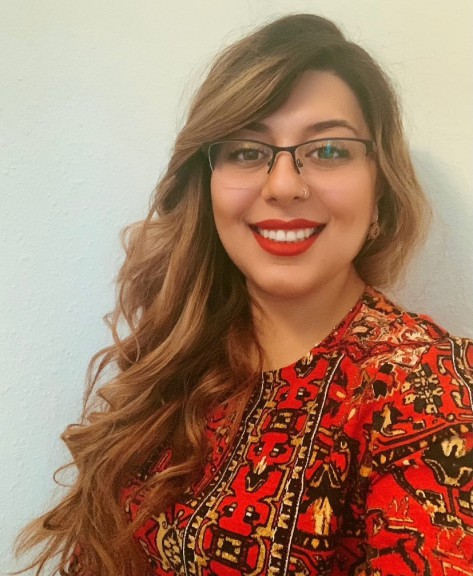
Who are you? Tell us a little bit about you.
My name is Meimanat Fathi (my first name means “happiness” in Persian). I am currently a PhD student at Leipzig University in the field of biotechnology. I moved to Leipzig from Iran about 6 years ago. Since then, I have been working and studying here in Leipzig. It has been a challenging but rewarding experience.
It has been hard to be far from my family, friends, culture, and even my mother tongue, and start a new life in a different atmosphere. Making new friends and learning a new language has also been challenging. But this is the cost that I have paid to fulfill my childhood dream of becoming a scientist.
Sadly, last year, I suddenly became very sick and I was fired from my job and was struggling to finish my studies. This experience taught me how difficult it can be for an Ausländer to navigate German bureaucracy alone and deal with all of the paperwork needed to get support.
I found that many of the social safety nets that German people can easily use are not as easy for foreigners to navigate, but many people and organizations here in Germany eventually helped me to succeed. I believe that every immigrant can be an asset to the host country, and organizations that help immigrants are an essential part of a healthy society. I hope that I will be able to help other immigrants if I am elected to serve.
When and why did you move to Leipzig?
I moved to Leipzig in 2015. I wanted to fulfill my dream of obtaining a PhD and becoming a scientist. I also wanted to be able to live in a country where, as a woman, I can live with the same rights and levels of freedom and dignity as men.
Why are you running for the Leipzig Migrants’ Council? What are your goals?
As an immigrant who moved to Germany I have had a lot of experiences that will allow me to understand and serve the needs of new migrants. I believe that immigrants of all nationalities should have equal access to integration courses as soon as they move to Germany. Also, I think it would help to make forms available in different languages in official offices in Leipzig, so that people can better understand and complete them.
I have found that there are many institutes that help immigrants with paperwork, counseling, job searches, discrimination, and other issues. These services are very helpful. However, there are often many clients who need assistance, and there is only a limited time when these services are open. Sometimes I had to wait several weeks in order to get an appointment.
I think it would be great to increase the capacity of the offices that serve the needs of immigrants.
Have you been involved in politics before? If so, where and in what capacity?
Although I have never been involved in any political parties or activities before, I would be excited to serve for the first time.
What do you wish was different in Leipzig for foreigners?
I wish it was easier for foreigners to learn about and complete legal paperwork in their native languages.
What is the best, worst or most memorable experience you have had as a foreigner in Leipzig? (Optional question)
When I came to Leipzig for the first time, I had mixed feelings. I was excited and stressed, I put my suitcases in a hotel and immediately went to the university. In front of the international office was a very long queue of students. When it was my turn, I went to the office and the person who helped me was very kind and welcoming, and explained everything about the university to me.
This little bit of kindness really helped ease the stress that I was feeling, and helped me start my transition into becoming a Leipziger. Since moving to Leipzig, I have also organized many gatherings for the international community here. We had many parties in which we shared our cultures, foods, and passions together.




